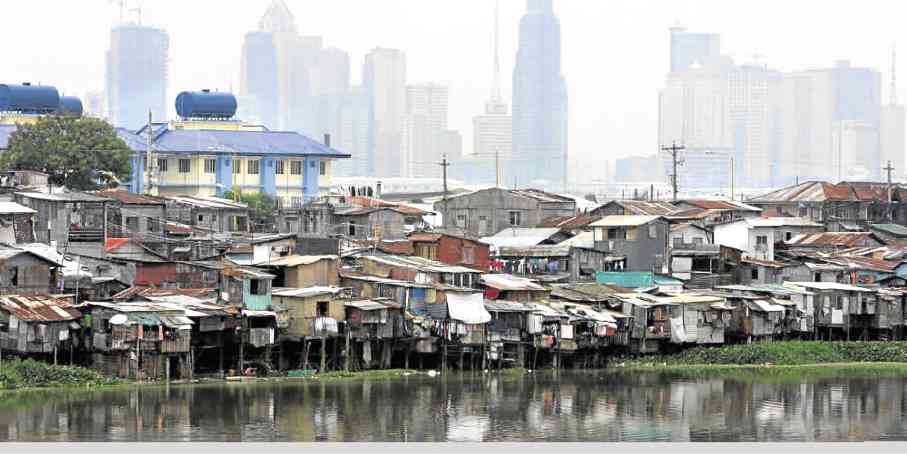It is a predicament that is just as pervasive and massive in other countries as it is in the Philippines.
Resolving the challenge of affordable and sustainable housing has long been a subject of many discussions and forums among think tanks, governments, experts, industry stakeholders, and the non government organizations. But this lingering problem continues to persist.
In fact, a chunk of the global population are still living in slums and indecent shelters, while governments remain on the look out for effective solutions to address inadequate housing, and for measures that will help promote affordable housing as a driver of economic growth.
Indeed, the problem of affordable housing is a universal challenge.
According to a paper written by Zaigham M. Rizvi last year for the World Bank, more than one billion people—or one out of seven persons on the planet—are now slum-dwellers. Asian cities such as Karachi, Dhaka, Mumbai, Kabul and Manila have some of the world’s largest slums.
“Asia, which is already facing a massive housing backlog, will soon be facing an even bigger housing challenge—compounded by the deterioration of the existing housing stock and the continuing shrinkage of household size. The housing deficit, with demand outpacing supply, is destined to intensify today’s already-massive housing backlog,” said Rizvi, an expert consultant on housing and housing finance to the World Bank Group.
“Despite government promises to alleviate the situation, most countries are making no progress toward meeting the housing challenge. Thus ground realities are fast deteriorating and are getting complex for urban planners for viable and doable solutions,” he had said in the paper.

The government would need to build 2,600 housing units every day over a six-year period to resolve the said backlog. FILE PHOTO
In the Philippines alone, the backlog on socialized housing was estimated to have reached 5.7 million units in 2016. At this level, the government would need to build 2,600 housing units every day over a six-year period to resolve the said backlog.
“The massive housing backlog in the Asia-Pacific region—made all the worse by the absence of adequate, affordable institutionalized housing finance and the apathy of stakeholders in addressing housing-related issues—requires an assertion of political leadership that goes far beyond political sloganeering. It is imperative that political leadership comes forward, in a determined manner to take on this challenge, by mobilizing urban planners, academic scholars, local governments and regulatory authorities,” Rizvi had said.
“Equally important is the need for knowledge-sharing—within the Asia-Pacific region and across all of the world’s regions—to apply best practices. Such forums as the International Union for Housing Finance (IUHF), the Asia-Pacific Union for Housing Finance (APUHF), and the African Union for Housing Finance (AUHF), could all play a significant role, helping share knowledge among urban-policy practitioners about the best-practice initiatives that have made progress in each of their regions,” he earlier stated.
In September this year, the sixth Asia-Pacific Housing Forum will be held in Hong Kong which will have “Housing at the Center” as its theme. This biennial conference, organized by Habitat for Humanity, is expected to attract more than 300 delegates from around the world for vibrant sharing of ideas and solutions for affordable housing. Preliminary events will be held in Cambodia, India, Indonesia and the Philippines.
Since it was first held in 2007, the event has already brought together more than 3,400 participants from over 52 countries.
“Whenever I attend the Asia-Pacific Housing Forum, I never cease to be amazed by the dynamic exchanges, and the energetic search for sustainable housing solutions. In September 2017, I’m looking forward to coming together with those from the public, private and people sectors to address needs and find solutions for affordable housing. With each event, we look forward to making progress collaboratively. Together, we can ensure that everyone has a decent place to call home,” said Rick Hathaway, vice president for Asia-Pacific, at Habitat for Humanity.
The sixth Asia-Pacific Housing Forum will feature four main tracks namely:
- Technology for affordable housing—which will tackle the latest technologies that can bring social good, ranging from construction materials to satellite mapping methodologies and web applications;
- Innovative partnerships—which will highlight the potential of multi-level partnerships in achieving goals related to poverty alleviation and the provision of affordable housing in the Asia-Pacific region;
- Resilience and social development—which will focus on how affordable housing can lift entire communities out of poverty, protecting people from natural disasters and generating livelihoods; and
- Sustainable urbanization and housing—which will look into the implementation of the New Urban Agenda, the roadmap for global sustainable urban development in the next 20 years, as well as initiatives that focus on housing as central to proper urban development.


